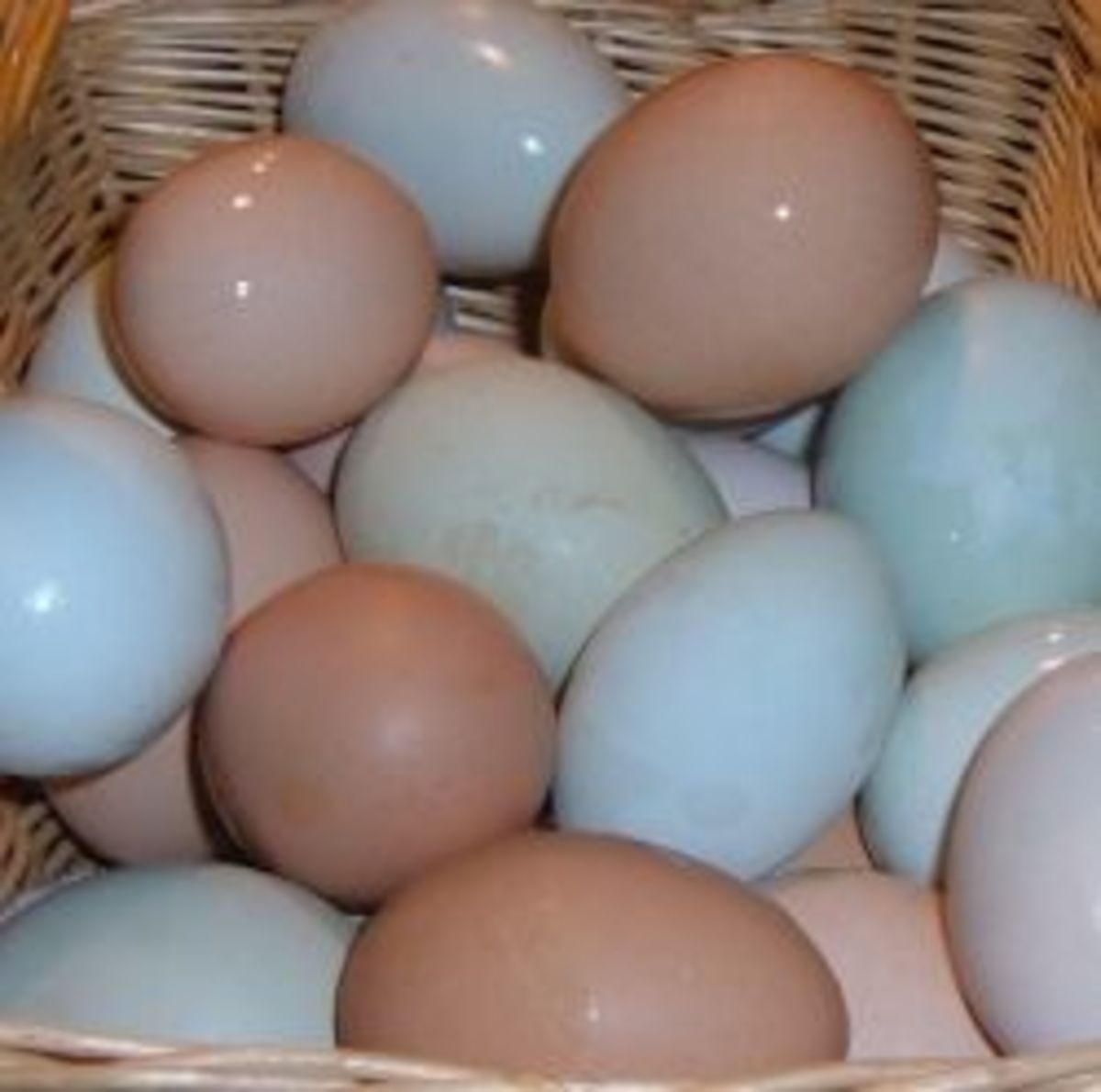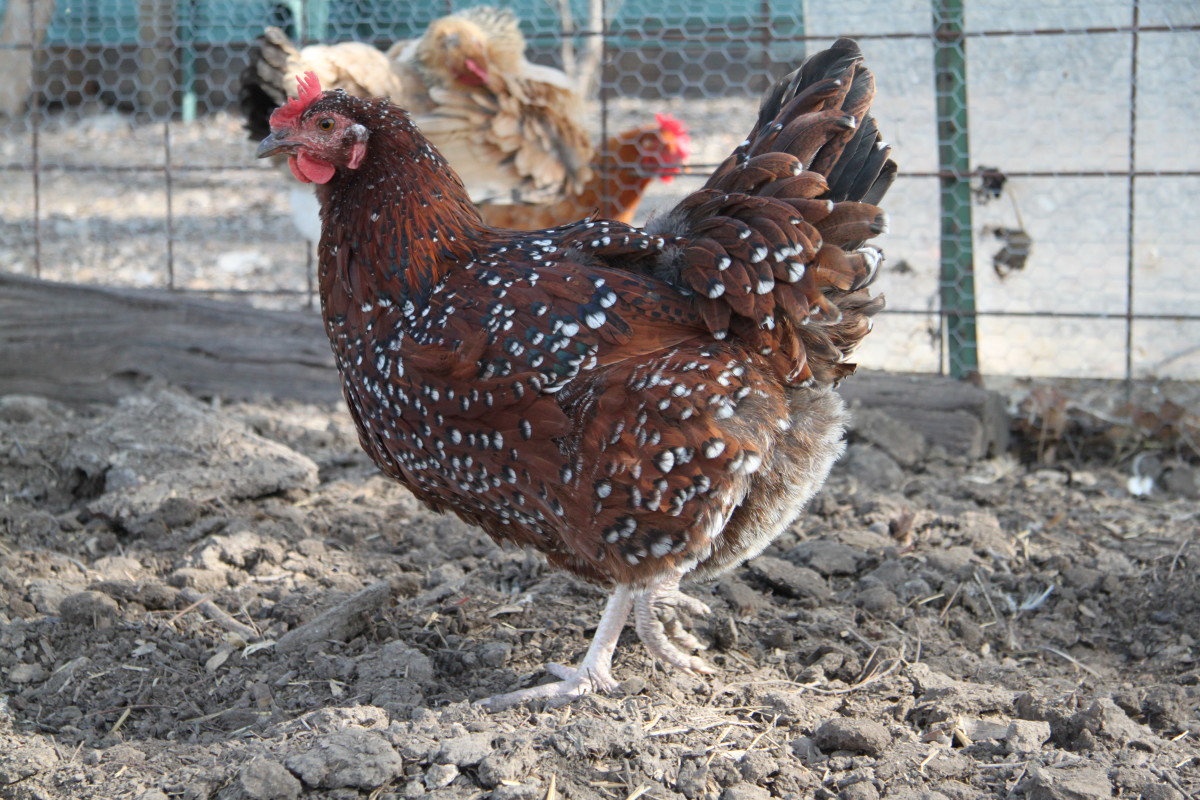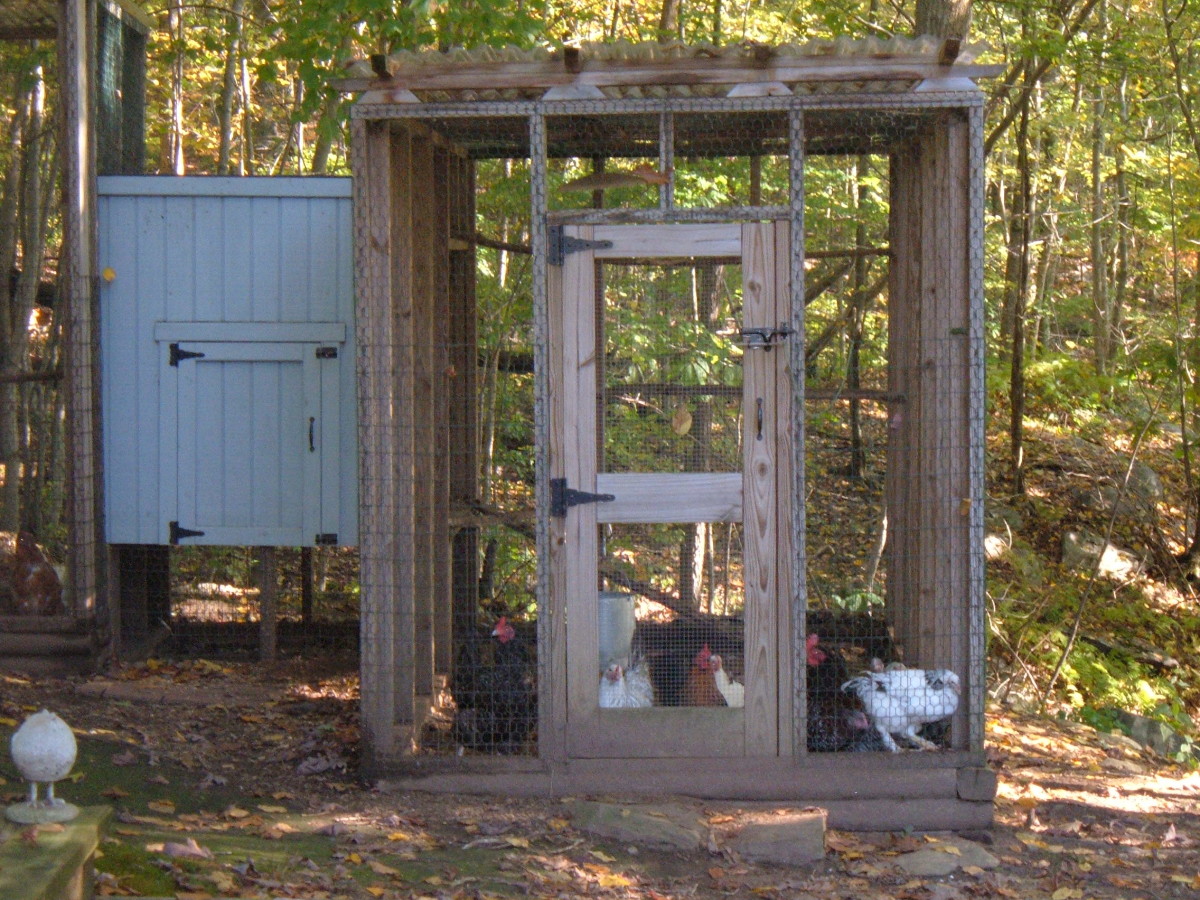Get Starting Raising Backyard Chickens
In this Article
- Chicks or Chickens
- State and Local Laws
- Setting Up a Brooder
- Moving Chickens to the Hen House
- Feeding Your Chickens: The Ballfour Method
- Foods You Shouldn't Give Your Chickens
So you are thinking about getting chickens or perhaps have just purchased chicks and are wondering what in the world you have gotten yourself into. Well, you have several decisions to make--like what to feed them, whether to get grown hens or chicks, and what you want their coop to look like--and lots of learning to do as you get started.
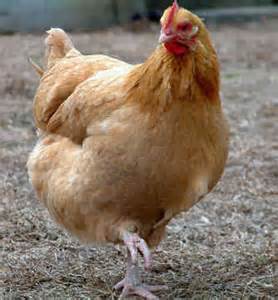
Want to make sure you get only female chickens? Look for sexed chicks at your local farm store. They will be labeled "pullets" which means they are all females.
Chicks or Chickens
The first decision you will need to make is whether you want to start out with chickens or chicks. There are definitely pros and cons to each that you will need to consider.
We had never been around chickens before we decided to get our own and we were nervous about having to handle grown hens. We also have young children who we thought would LOVE playing with little "chickees." So, we purchased chicks from our local tractor supply company so that we could get used to handling the chickens while they were small and hopefully be more comfortable with them as adult hens.
If you decide on chicks you will need something called a brooder, small food and water dishes, a heat lamp, pine bedding, special food called "chick starter," and an electrolyte solution to mix with their water for the first week or so. You will need to check on your chicks several times a day, cleaning out their water bowl two to three times and changing out their bedding every couple of days. We try to get them out every day to hold them and feed them from our hands in hopes that we will all be comfortable with each other when they are grown.
The downside to getting chicks is that it will take at about 4-6 months of caring your little chick-a-dees before you will be rewarded with eggs and you need an inside space to care for them until they get to be about 5-10 weeks old and can go outside in the hen house. The other problem with chicks is that they are only available through farm stores a couple short months during the year--usually around Eastertime and most stores have policies that you must buy a minimum of 4-6 chicks at a time, which may be more than you are wanting to start out with.
Alternatively, you could buy laying hens from a local farmer or other chicken owners. You may want to go this route if you want to start getting eggs immediately, or do not want take on the extra responsibility of raising little chicks and already have a chicken coup and run set up and ready for the chickens. Chicks are typically only sold during the spring season, around Eastertime. If you decide to take the plunge any other time of year, the easiest avenue is to purchase mature chicks.
Buying grown hens has it's drawbacks, however. To find chickens you will need to find someone wanting to get rid of some! You will need to scour craigslist and/or local newspaper want/for sale ads. You will need to watch out for people selling or giving away hens that are past their laying prime. Finally, mature hens may not be as social or as friendly as hens that you have handled since they were chicks. If being able to handle your chickens easily is important to you, buying mature hens may not be the right option for you.
You could do both of course, which allows you the best of both worlds. Eggs immediately and chicks to raise. The main drawback with going this route is that you will need to manage integrating the hen and chick flocks into one flock, which could be intimidating if you are chicken newbie.
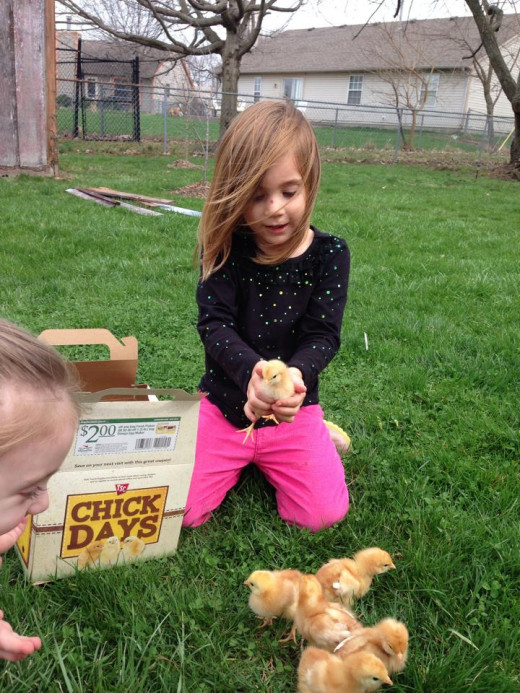
State and Local Laws
Many, if not most cities allow backyard chickens, although roosters may or may not be allowed. It is very important that you find out what your cities rules are before buying your chickens. Some cities allow hens but not roosters, some have a maximum number allowed, and in some cities you must get a permit to have chickens. You can look up your county or city's ordinances to find out what your options are. Be warned though, most home owners associations do not allow backyard chickens.
You might be able to can save yourself some research time by going to http://www.backyardchickens.com/atype/3/Laws to look up your state's--and possibly even your city's--ordinances regarding backyard chickens.
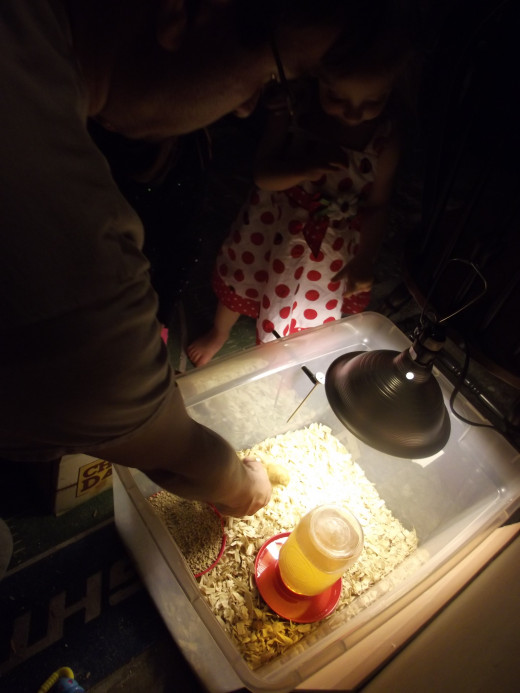
Having trouble taking the plunge? Don't be afraid of spontaneity. After talking about getting chicks for a couple of years, we purchased our chicks on a whim. It was the perfect excuse to tear down our old shed and get a coop built. The chicks were in their brooder for about 5 weeks--plenty of time to get their coop built!
Setting up a Brooder
As I already mentioned, if you are going to raise chicks, you will need to keep them inside in a brooder for the first 5-10 weeks. In the photo above you can see everything you need. We put a couple inches of pine bedding in a plastic tub in our garage. Our local tractor supply had feeders and waters that screw on to regular-mouth ball jars (which we happen to have a lot of). Of course you could use small bowls for their food and water, but make sure to put pebbles or small rocks in the water bowl to make it more shallow or the chicks could drown.
Your chicks will must stay at about 95 degrees for the first week, and you can lower the temp by about 5 degrees a week. You will need a thermometer and heat lamp and will need to play around with the lamp to find the right height to keep the chicks at the proper temperature. The chicks will show you if the temperature is alright. If they are all huddled together under the light, it is too cold. If they are huddled away from the light, or are panting, they are too hot. As you can see from the picture, the light should be placed on one side of the brooder so the chicks can move away from the heat if they get to hot.
This box was a bit small for our six chicks and we moved them to a bigger, taller tub after the first week. In a few weeks I think we will need to move them again or cover the tub so they can't fly out.
Moving Chickens to the Hen House
After about 5 weeks, your chicks will be ready to move to their permanent home. From 5-10 weeks old, they will need a heat lamp if the weather drops below 55 degrees. Once they are 10 weeks old they can handle cold weather fine.
If you want your chickens to go willingly into their hen house each night, you will need to teach them that the coop is their home. To do this, set your chicks up in the coop with plenty of food and water and lock them in the coop for about a week, checking on them daily of course. This teaches the chicks that the hen house is their home, their safe place to sleep. After the first week, you can let them out to free-range or just let them into their run.
Feeding your Chickens: the Ballfour Method
Many chicken owners believe they should feed their chickens only chicken feed, giving kitchen scraps only as occasional treats. However, this is not what families have traditionally fed their chickens in earlier centuries and it is not what people in other countries do. Rather, chickens were an are allowed to forage for insects and worms and given discarded vegetable and fruit greens, grains and all manners of table scraps including meat and bones and egg shells, but never chicken.
We are using the Ballfour Method of feeding chickens is simple, extremely economical and healthy for the chickens. It also gives you dark, rich compost for your gardens.
With the Ballfour Method, you set up a compost pile in the chicken run by laying 4-6 inches of straw or pine chips in a "scratch area" outside of the chicken coop. This area becomes the compost pile, where you will throw all compostable materials including bones, grains, vegetables and fruits, garden greens, grass clippings, weeds and leaves. The chickens eat kitchen scraps and the worms and insects that come to feed on the scraps. As they spend their days scratching in the scratch area, they quickly turn the discarded materials into rich compost.
You may need to supplement with chicken feed, especially in the winter months when greens aren't as plentiful, but overall, it is a much cheaper and healthier method of feeding your chickens.
Chickens are not vegetarians, nor do they naturally eat all grains and processed, GMO food. The Ballfour method allows the chickens to eat closest to their natural diet and is therefore the healthiest choice for them.
Foods You Shouldn't Give to Your Chickens
Food
| Reason
| |
|---|---|---|
Green potatoes
| Can be poisonous to Chickens
| |
Onions, Garlic, leeks,and chives
| Change the taste of the eggs
| |
Citrus
| May soften the egg shells
| |
Avacado peels and pits
| May be toxic to chickens
| |
Dried beans
| cooked beans are fine
| |
Azaleas, goldenrod, columbine, and trumpet vine
| poisonous to chickens
| |
non-nutrative foods
| examples: highly salted, sugar, chocolate
| |
Raw egg
| If the get a taste fo raw egg, they will eat their eggs
| cooked eggs and egg shells are safe to give.
|
non-chicken animal food
| ie: cat or dog food
| |
non food items
| can damage their digestive system
| chickens will eat styrafoam, paper, lead fishing weights, etc...
|
- Chicken Coop Maintenance
A well maintained chicken coop can be the difference between healthy, happy birds and diseases and accidents. Your productivity can hinge on good practices for keeping your coop up to standards. - Build a Backyard Chicken Coop - Chicken Cage Designs
Build a Backyard Chicken Coop - Chicken Cage Designs. A coop, or cage, is what you normally call a chicken’s house. It’s their kingdom! A hen’s castle. - Raising BackYard Chickens, Build a Chicken Coop, Pictures of Breeds
How To Raise Chickens, Build chicken coops, Hatch baby chicks. Everything you need to know about raising rural or city chickens in your own backyard.
Final Thoughts
Studying chicken care is important, but you may never feel that you know enough to get started. At some point you will just need to take the plunge and get some chicks. There are almost as many methods to raising and caring for chickens as their chicken owners and you need to find out what is right for you through a little research and some old-fashioned trial and error. Read what others are doing and try out what feels right to you. You are the curator of your little farm, after all.
© 2014 Sarah




